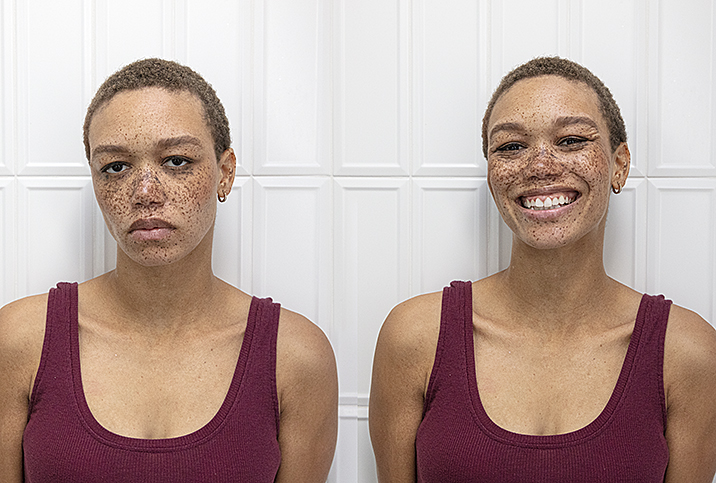How I Deal with Premenstrual Dysphoric Disorder

I got my first period one morning in sixth grade. I was confused and unsure about what my body was doing, but I went along with it and eventually accepted it. By the time I started expecting it each month, I had also come to expect indicators of premenstrual syndrome (PMS), a group of emotional and physical symptoms females may experience just before menses. PMS is fairly common, affecting more than 90 percent of women who menstruate.
I always got the usual PMS symptoms: body aches, lower back pain, cramping, headaches, fatigue, mood swings and more. And with limited knowledge about my cycle and an assumption that everyone experienced these sometimes debilitating symptoms, I didn't think to dig deeper when it came to my period.
My PMDD diagnosis
It wasn't until I was in my early 20s that I began to experience severe mood swings and irritability. These symptoms were abnormal compared to what I was used to, and they proved more crippling than the usual PMS. I confided in my mom, who suggested tracking my symptoms and seeing if I noticed a correlation with my cycle. I started logging my afflictions and after a few months noticed a pattern: The extreme mood swings and irritability always began about two weeks before my period.
Premenstrual dysphoric disorder (PMDD) refers to a cluster of physical, mental and emotional symptoms a person feels in the weeks leading up to their period, and the symptoms typically subside when menstruation starts. PMDD is similar to PMS in some ways, but its sufferers are often unable to function at normal capacity while experiencing symptoms. PMDD affects up to 8 percent of women who menstruate and causes extreme mood swings that can disrupt your daily life and cause turmoil in your relationships.
Symptoms of PMDD can appear anytime between puberty and menopause, but women most often experience problems in their late 20s through early 30s. These symptoms are unique to each individual but may include severe fatigue, mood shifts, emotional sensitivity, irritability, heart palpitations, paranoia, backaches, muscle spasms, hot flashes, sleep disturbances and more. The one to two weeks when PMDD symptoms rage are pure hell and can take a significant toll on the physical and mental health of the sufferer and her loved ones.
I have unknowingly suffered from PMDD for years. It is common for PMDD to coexist with other mental illnesses, including generalized anxiety disorder, which I was diagnosed with earlier in life. My mental health counselor put my symptoms together and strongly felt I was dealing with PMDD. My counselor explored the diagnosis of PMDD with me before recommending I see a practitioner to discuss treatment.
Be your own advocate
PMDD isn't widely understood by many specialists. I advise anyone who suspects they're dealing with PMDD to learn how the disorder affects them specifically, and to go into a doctor's appointment feeling empowered and ready to self-advocate. Be mindful and aware of what is happening in your mind and in your body. Tracking your cycle is key when it comes to managing PMDD. Knowing how your body responds in each phase of your cycle will make it easier to predict when your symptoms will flare up.
Another great way to manage this disorder is to ask people closest to you what changes they notice, if any, when it's that time of the month. Having a third-person point of view might make it easier to detect patterns you haven't yet noticed. Before you approach your doctor about the topic, collect an arsenal of well-documented information. This will allow you to feel more confident and comfortable advocating for yourself and your mental and physical well-being. Taking greater agency in your health is something everyone should get comfortable with doing.
Today, I am able to manage my PMDD and have developed coping skills to regulate my emotions during the weeks leading up to my period. The journey to get to this point has been long, exhausting and often discouraging. Unfortunately, many physicians recommend antidepressants immediately rather than exploring other treatment methods first. Know that there are other options: medications, including birth control pills; lifestyle changes, such as a healthy diet and exercise; and vitamins and herbal supplements.
Alternatively, I've had medical personnel completely invalidate my experiences and try to convince me the symptoms were indicative of something else entirely—a phenomenon referred to as "medical gaslighting." Had I not logged my symptoms and done my own research about PMDD, I may not have obtained the help I needed when it came to managing this disorder.

















